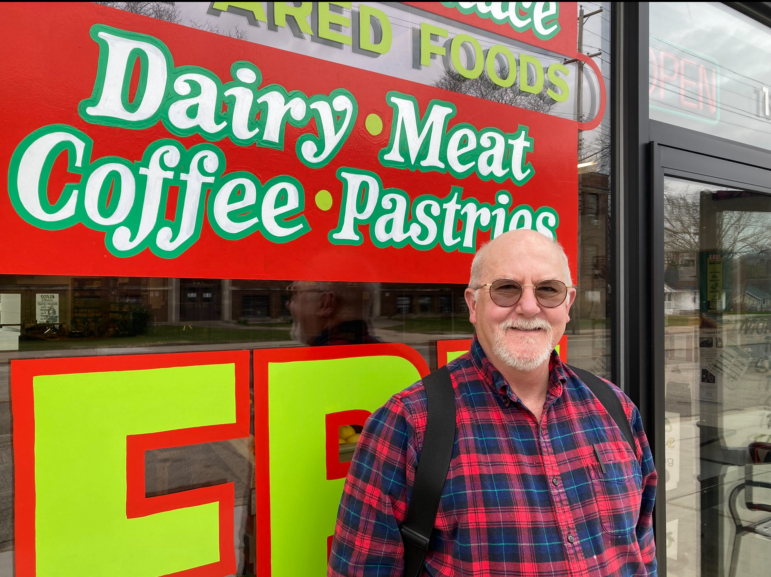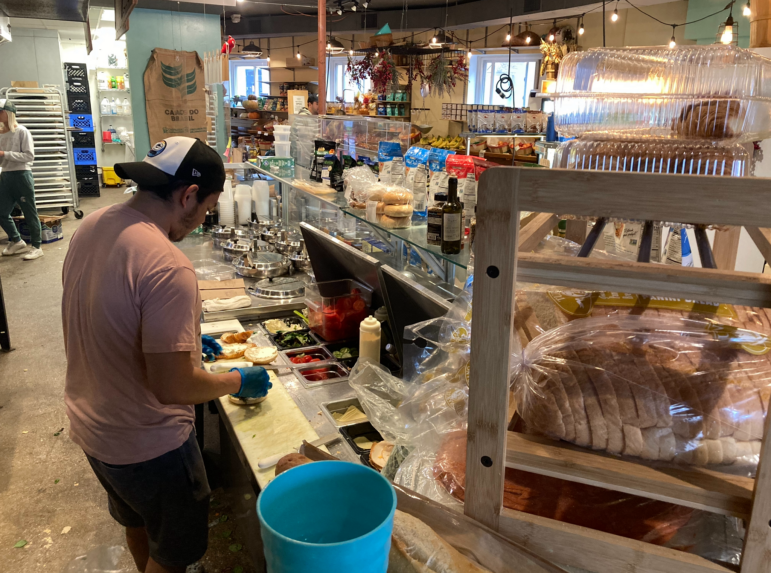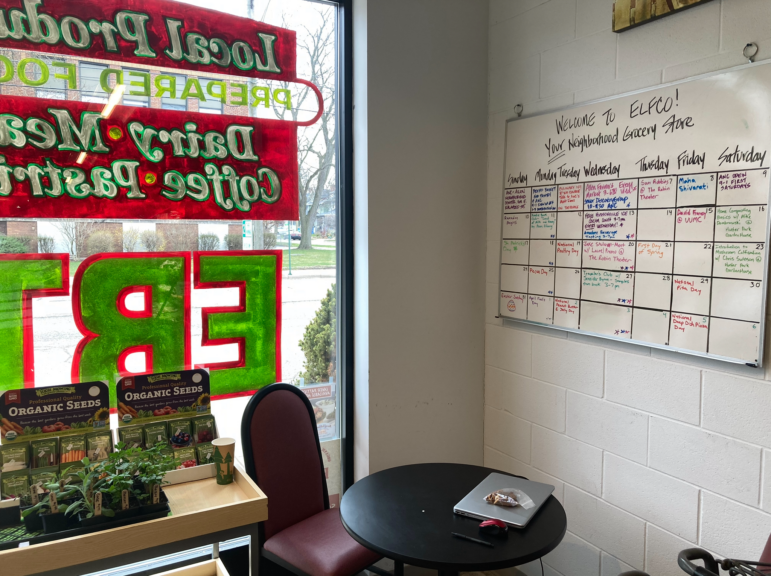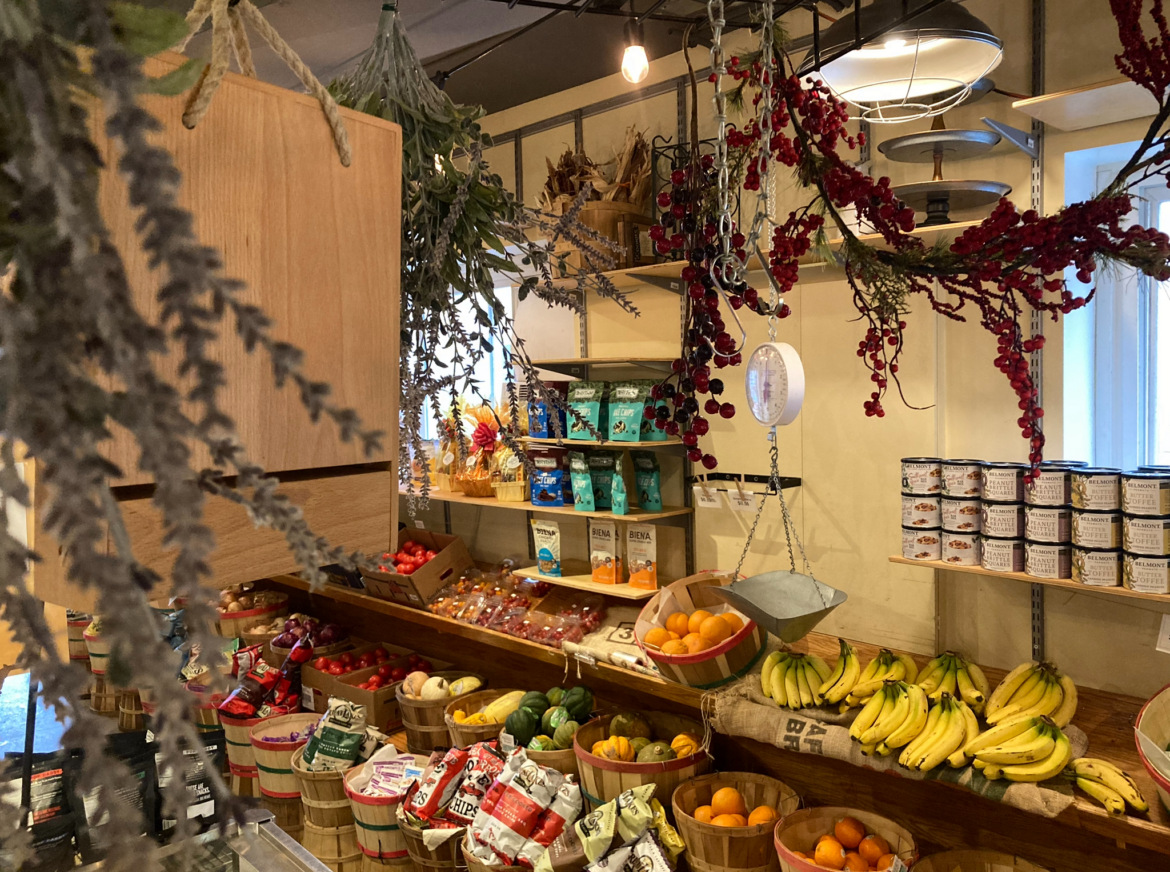LANSING, Mich.—The way food travels from farm to table is complex. The food that shoppers normally see in massive grocery stores is grown on large farms, harvested in large quantities, stored until it can be transported to market and finally sold in grocery stores. When the food supply chain is local, the process can become even more nuanced. Two stores in Lansing that promote local food production are The Eastside Lansing Food Co-op and Campbell’s Market Basket.
The Eastside Lansing Food Co-op is a small grocery store on Kalamazoo Street, and Milton Shoup is the fresh product and produce manager. Shoup said the original co-op operated for about 30 years in various locations but was outcompeted by Whole Foods when it opened nearby on Grand River Ave in 2016. The co-op board voted to close the store in 2017 until they could find a new location. Eventually, the Allen Neighborhood Center was planning for a local grocery store, and the Eastside Lansing Food Co-op board decided it was a good partnership. They reopened their doors in 2022.

Campbell’s Market Basket–owned by Ken Campbell–is another shop containing local produce and sits across from Michigan State University’s campus on Grand River Avenue. Stocking fresh ingredients for the culinary curious, pre-made meals for late-night dinners, and quick lunches for those on the go, Campbell’s Market Basket features a variety of options. Both Shoup and Campbell say that local food comes down to three things: selection, pricing, and equity.
Selection
An important consideration for shop owners providing local food is the inherent seasonality of fruits and vegetables. These items are typically highly perishable and weather-dependent. Even through winter months, customers need fresh produce.
“It’s definitely challenging,” Campbell said. “I think I tend to buy more […] varieties and offer a diversity of products, whether we have an organic option versus a conventional option.”
Shoup said, “We’re trying to make sure that you can have access to these fresh products year-round in a similar sense to any other grocery store. The dividing point on that is as soon as it becomes seasonally available, we’re going to have it. I think that flexibility makes us appealing as well.”
The Eastside Lansing Food Co-op is also working to expand its gluten-free and other allergen-free products. Shoup said the co-op wants to support a greater diversity of diets and clients.
Campbell added, “I think people also understand they are shopping in a very small independent market. They don’t expect us to be like a Meijer or a Costco and have 10 brands or 10 varieties of the same label. We just couldn’t afford to do that. But I think people are willing to sacrifice those choices and diversity for quality and seasonality of local organic products.”
Campbell’s works with other local producers to provide specialty goods. While Campbell’s employees prepare the sandwiches, salads, and other perishable items, they partner with other local businesses to supply specialty items.
“We bring in other products from other [nearby] producers and it enables us to get a ton of different varieties and flavors out there. We could never make ten different soups every day,” Campbell said.

Pricing
Affordability is another concern with local food. Even if the produce is stocked and fresh, a lofty price can severely restrict food access. Larger farms have an edge in affordability.
General manager of Grazing Fields, Jane Bush said, “When you’re pinched on your budget, would you buy a great local tomato, or would you settle for something that is a dollar less? It’s really easy to make that decision. But if you don’t buy that tomato when times are good, you’re not supporting the local farm that needs that support.”
“A lot of those small farms and smaller operations need to charge more.” Campbell said, “I understand that because I’ve done that. I used to own a small farm.”
Bush explained, “You can get eggs or anything so much cheaper if you go to Aldi’s or some other regular grocery store but [there are things] that work into the price of food that we don’t see. The environmental consequences of producing food in a non-sustainable way. We’re gonna pay down the road anyway.”
Equity
In response to the difficulty of balancing the higher cost of local goods with affordability, Shoup said, “Part of our mandate with the partnership with the Allen Neighborhood Center was to bring a grocery that would be accessible to a very diverse economic population, that would be accessible to an ethnically diverse population, that would be accessible to the local and urban farmers and growers around the area, and become a hub in the middle of this–I think very accurately called–a food desert.” He then emphasized, “We do not do lotto, liquor, beer, wine, cigarettes, tobacco products. We don’t have any of these things. We are a dedicated grocery store.”
Local food is more than just the fare in the fridge, it’s about supporting community-based food systems and resilience. How we source our food influences preferred growing practices, the environment around us, and our sense of community. The marketplaces devoted to local food can be hard to find but are worth a visit.

